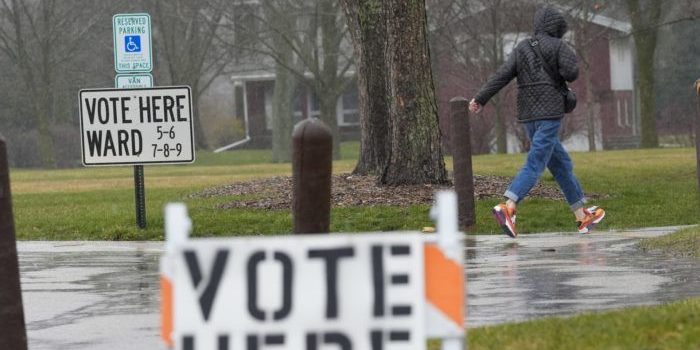(Headline USA) Private money to fund elections will be banned in Wisconsin after voters approved a constitutional amendment Tuesday put forward by Republicans in reaction to intrusive grants received in 2020.
Those grants, designed to deliver additional votes for Democrats in the battleground state’s major urban centers, were funded by donations from Facebook founder Mark Zuckerberg, and were overseen by left-wing activists with ties to George Soros and Barack Obama, among others.
They worked exactly according to plan, with partisan idealogues infiltrating the voting offices in cities like Milwaukee, Madison, Green Bay, Kenosha and Racine, where they would put demanding conditions on the use of the grant money to force the implementation of dubious election policies.
In Racine County, for example, the increased use of absentee and mail-in balloting enabled leftists to deploy a massive ballot-harvesting operation at nursing homes, encouraging the staff to direct residents there on how to vote.
Voters also approved a second question put on the ballot by the Republican-controlled Legislature that amends the state constitution to say that only election officials can administer elections. That’s already state law, but putting it in the constitution makes it more difficult to repeal or change.
The Wisconsin Republican Party hailed approval of the amendments.
“Wisconsin has spoken and the message is clear: elections belong to voters, not out-of-state billionaires,” said state GOP Chairman Brian Schimming in a statement.
By adopting the amendments, “voters sent a clear message that they want to keep private money out of election administration,” said Rick Esenberg, president of the conservative Wisconsin Institute for Law and Liberty.
“Whether you identify with the left or the right, ensuring the fairness and integrity of our elections should be a shared priority,” he said in a statement.
Democrats opposed both measures, which they argued would make it more difficult to conduct elections. They also raised concerns about how the broadly written election workers provision would be interpreted and implemented by local election officials.
Both constitutional amendments on the ballot were in reaction to grant money that came to Wisconsin in 2020 from the Center for Tech and Civic Life, a leftist group that received a $300 million donation from Zuckerberg and his wife, Priscilla Chan to help election officials buy supplies and run elections during the COVID-19 pandemic.
But its philanthropic objective masked its more nefarious purpose of targeting the Democrat population centers in otherwise red states and conducting a defacto get-out-the-vote operation to flip them in favor of Joe Biden while loosening standard election-integrity safeguards.
The state’s five largest cities, all of which Biden won, received $8.8 million in “Zuckerbucks.” They were among roughly 200 communities in Wisconsin that received around $10 million as part of more than $350 million given out nationally.
Since 2020, Republicans in at least 27 states have outlawed or restricted private elections grants.
The Wisconsin measures were supported by Republicans and conservative groups, including the Wisconsin Institute for Law and Liberty and Election Integrity for Wisconsin.
They are opposed by an array of left-wing activists and lawfare front-organizations, including the American Civil Liberties Union, Common Cause Wisconsin, Wisconsin Conservation Voters and the League of Women Voters of Wisconsin.
Not a single Democratic lawmaker voted for the amendment, which was split into two questions on the ballot.
Republicans, who control the Legislature, brought the constitutional amendments to circumvent Democratic Gov. Tony Evers, who almost surely would have vetoed the measures. Amendments are not subject to the governor’s approval.
Wisconsin voters had previously approved 148 out of 200 proposed constitutional amendments since the state constitution was adopted in 1848, according to the nonpartisan Legislative Reference Bureau.
Adapted from reporting by the Associated Press

